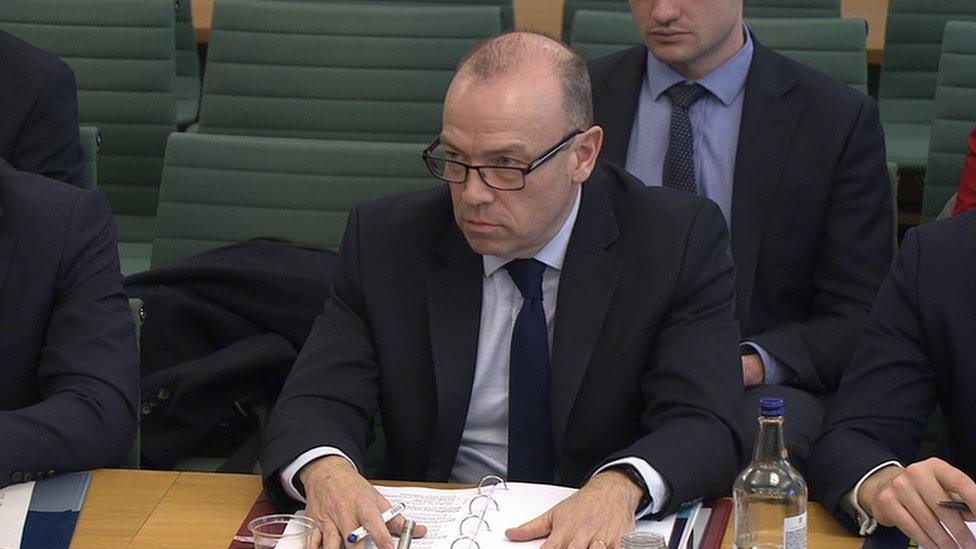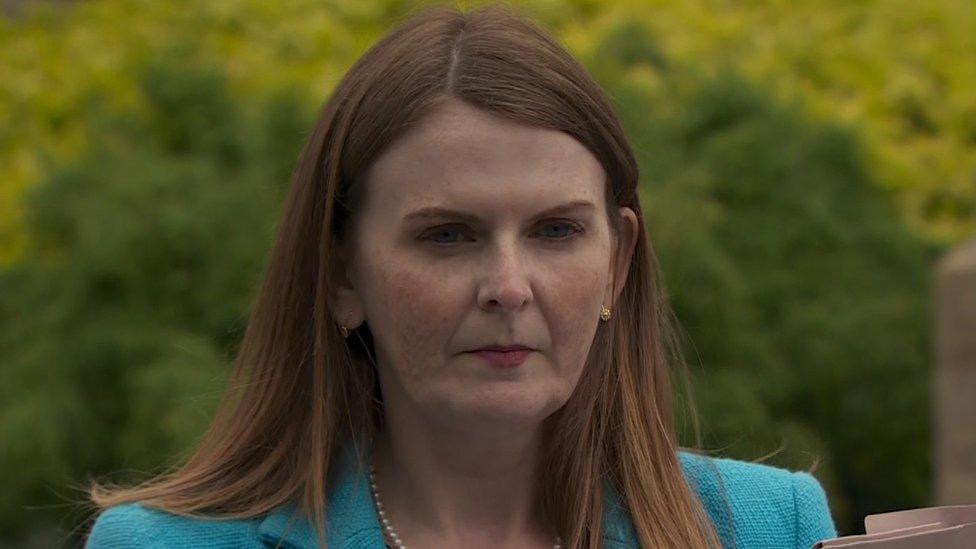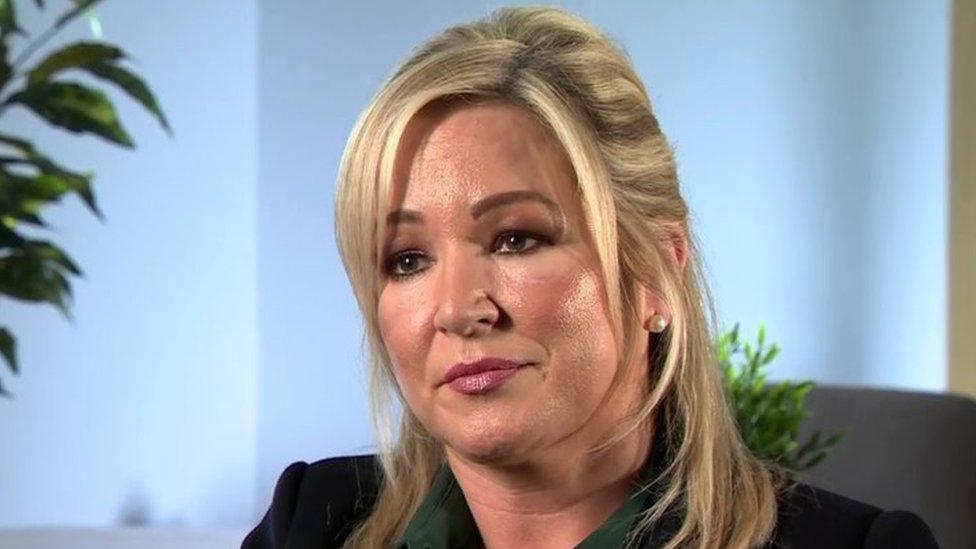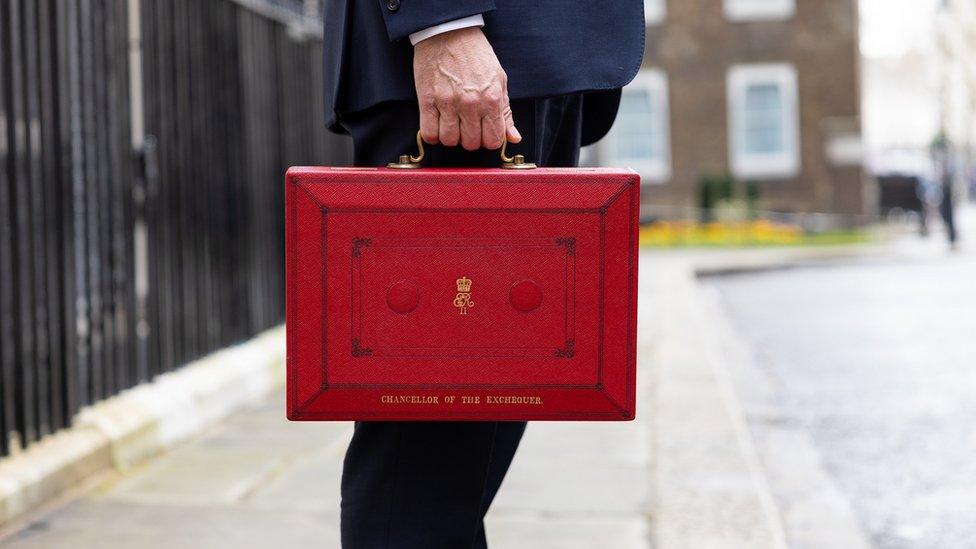Stormont funding: Trade-offs needed says Chris Heaton-Harris
- Published

NI secretary Chris Heaton-Harris at the Northern Ireland Affairs Committee
The Northern Ireland Executive will need to make "trade-offs" when it comes to spending money, the Northern Ireland secretary has said.
Chris Heaton-Harris said this would require revenue-raising as the devolved administration must "live within its means".
The government has asked the executive to raise £113m under a financial package for the restored institutions.
The executive has criticised the plan.
Mr Heaton-Harris was speaking at the Northern Ireland Affairs Committee about the £3.3bn offer for the new power-sharing executive.
'Live within its means'
He told MPs it was an "unprecedented financial package" which helped address issues raised during talks with Stormont parties last year, "including funding for public sector pay".
"But as with any other administration in the United Kingdom, the executive will need to make strategic choices about how it spends its money and trade-offs in that space," he added.
"Because it does need to live within its means, and realistically I believe that will require some revenue-raising."
Stormont ministers have said they did not sign up for revenue-raising as part of the financial package.
But Mr Heaton-Harris said "revenue-raising has always been part of this financial package".
He told the committee the local parties "weren't keen, but they understood that it was part of this package".
"Part of the package is that there is some degree of revenue-raising and they accepted the package," he added.
Finance minister Caoimhe Archibald has previously highlighted her "serious concerns" with the financial offer.

Sinn Féin's Caoimhe Archibald said the current offer does not provide a "sustainable solution" to public sector pay demands
In a letter to the Treasury, she said the requirement to raise £113m in the next 12 months would "only serve to cause more harm to hard-pressed families, households and businesses".
She also said it was "not acceptable" to make a £559m debt write-off from previous years conditional on the publication and implementation of a sustainability plan, which the government wants to see released by May.
The Northern Ireland secretary said there were "a number of levers available" for the executive to generate income.
He argued that the executive had previously made decisions on public services and revenue-raising which were "on balance more generous than rest of Great Britain", known as "super-parity" measures.
"So continuing to provide additional levels of public services without raising additional revenue means that public finances are unsustainable," he said.
On the government's financial offer, Mr Heaton-Harris added: "We all want sustainable public finances in Northern Ireland.. and we believe this is the right way forward."
First Minister Michelle O'Neill has ruled out a 15% increase in the regional rate as a means of raising revenue - a figure which previous government estimations have suggested could raise £113m.
Rates are a property tax which help fund public services in Northern Ireland.
Related topics
- Published13 February 2024

- Published12 February 2024

- Published15 January 2024
